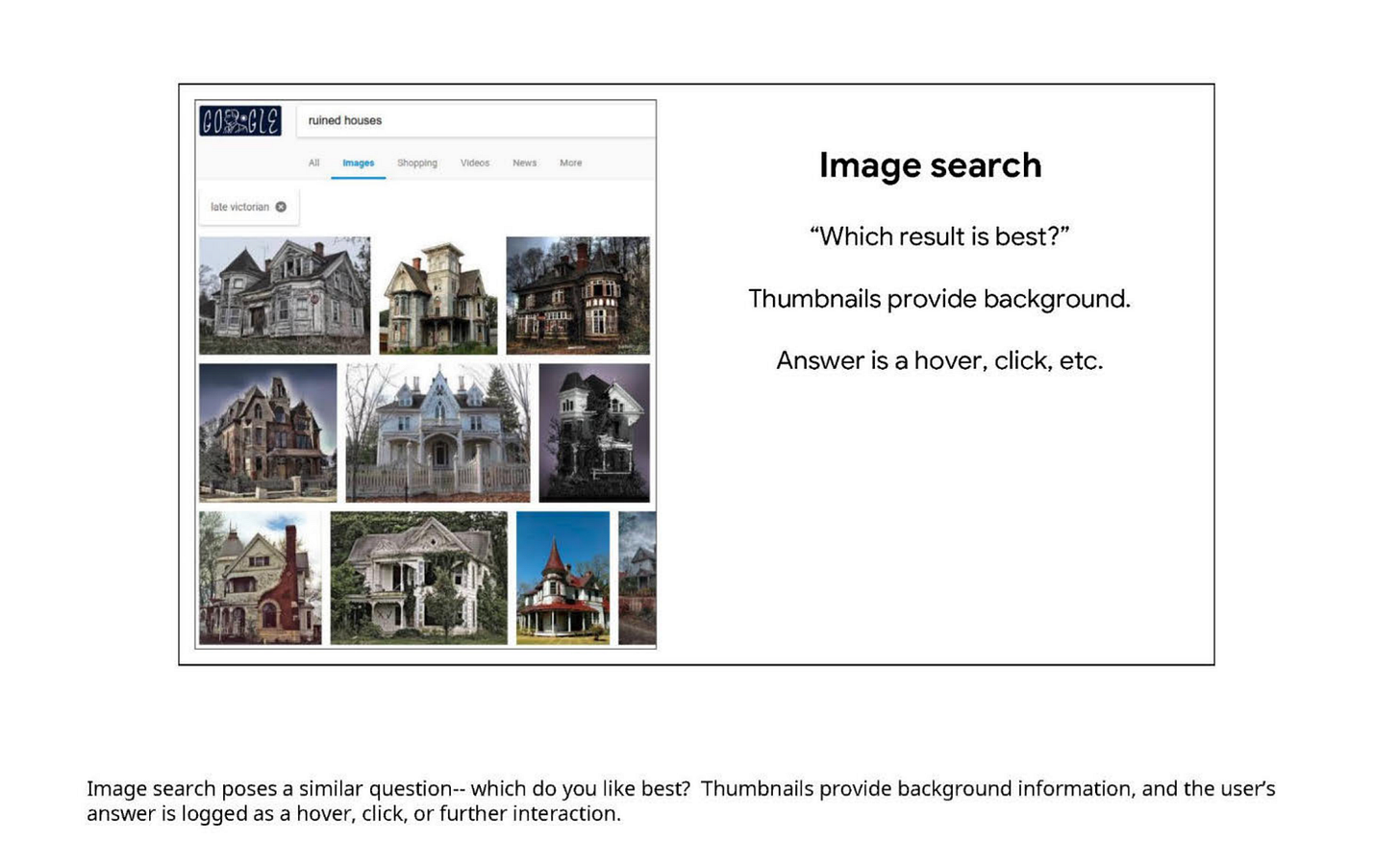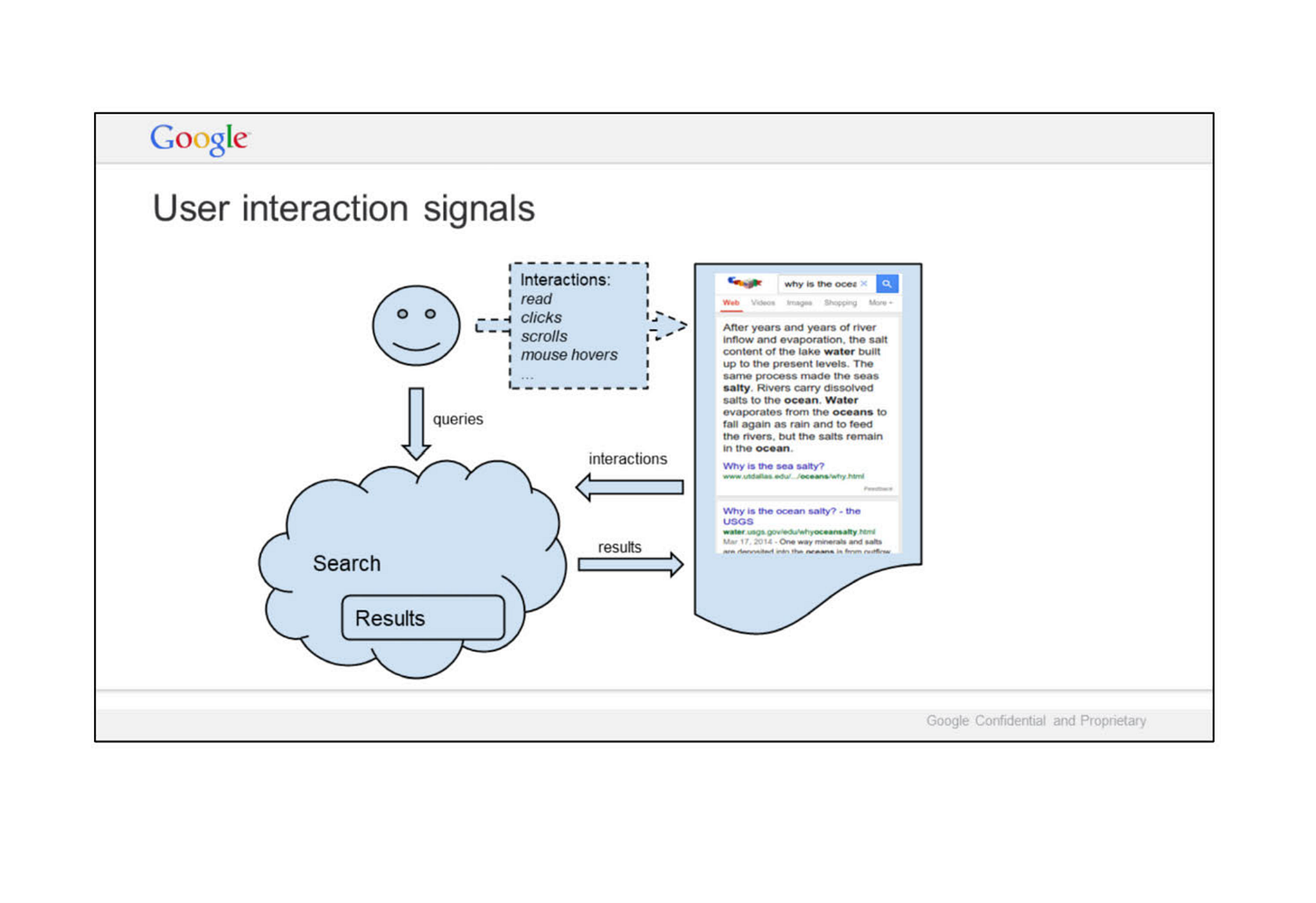What Google's Trial Documents Reveal About the Algorithm
User signals are more important than previously thought
Google is currently in the middle of a massive antitrust lawsuit.
The government claims that Google is a monopoly and that they’re unfairly blocking competition.
That’s probably (definitely) true, but it’s not the most interesting thing about the case.
What’s really blowing my mind is that Google was forced to make public several redacted internal documents that explain how the algorithm works.
Big G was forced to reveal some things about their algorithm that they’d probably prefer to keep secret. One of those is the role user signals play in ranking search results.
User behavior is an extremely important part of the algorithm
The standard SEO view is that user behavior does play a role, but that it’s a relatively minor ranking factor at best.
Well thanks to this massive lawsuit, we now know that how users engage with the search results actually plays a MASSIVE role in determining what ranks and what doesn’t.
Here are some relevant slides from the redacted documents Google was forced to release:
They aren’t just tracking clicks on links either. That’s way too basic.
Google tracks everything.
They even track what you hover your mouse over.
They also track what users scroll and read.
Clicks on SERP features e.g. expanded knowledge cards are also tracked.
If Google is this obsessive about tracking user behavior in the search results then guess what? It means that they’re tracking everything on the entire internet.
Google isn’t just Google.
The company owns Android, Gmail, Drive, YouTube, Chrome, Analytics, Waze, Maps (local SEO data goldmine), Nest (aka Google spy devices inside your home), Fitbit (you thought Big G cared about your health lol), Fi (cell phone service), ChromeOS, and many many more companies/products.
The point is: they have all the data. They know what everyone’s doing on the internet at all times.
Of course they use it to train their algorithms.
Another released document shows that Google officially considers user behavior as one of their “3 Pillars of Ranking”. The other two are “Body” and “Anchors” or as you and I would call it on-page and off-page SEO.
And they base the results an individual user sees on what similar users have clicked on in the past.
Is this surprising?
Not really.
We’ve always known that user signals are a part of the algorithm. What we didn’t know is just how BIG of a role they played.
The fact that Google’s own internal documents put user signals on par with on-page and off-page ranking factors is a big deal. It means that how people interact with your site is on the same tier of importance as the actual content itself AND links/social signals.
The wildest part?
It’s going to get even crazier.
In a blog post Google published earlier this month they stated that they’re going to make the SERPs even more personalized “later this year”.
If someone visits the same site repeatedly, that site will show up at the top of the user’s own personalized SERPs.
They aren’t just grouping people in buckets based on how similar they are to each other. Now the search results are going to be fully atomized and different for every user.
Of course we don’t know what percentage of search results pages this feature will be rolled out on, but it’ll likely start small and then expand to more if successful (as is usually the case with new search features).
Bottom line
Make every aspect of your site as appealing to real people as humanly possible.
The standard approach to SEO has been to “write for the algorithm” i.e. bots over humans.
And to be honest, that approach worked really well up until the Helpful Content Update.
Times have changed.
Now you need to start creating content that people genuinely want to read. Googlebot is still important, but you need to balance nerdy algorithmic thinking with softer people-oriented skills if you really want to succeed with SEO in the future.
Google is only going to get better and better at detecting and ranking the content that people actually engage with going forward.
You can choose to accept it or not, but you can’t avoid the consequences. This is how it is now.












>If someone visits the same site repeatedly, that site will show up at the top of the user’s own personalized SERPs.
The death knell for keyword-only sites. If someone clicks on you once and never revisits because your writing is trash? It's over
>Maps (local SEO data goldmine)
local/service biz SEO would be a great article
I'm building a local/online service biz (web design/dev) and working through the SEO now. KW researched informational articles, KW researched service subpages, etc. Still not seeing a lot of traffic, though. GSC says 8.7k impressions, 46 clicks last 3 months. Site went up ~7 months ago, posting consistently ~2 mo
Thanks, Tetra.
This further helps a lot to focus on genuine content and not get swayed by the bs of AI and cheap, regurgitated content.
Authenticity, however dim it is in this world, still matters at the end of the day.